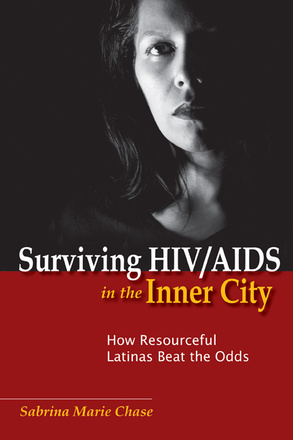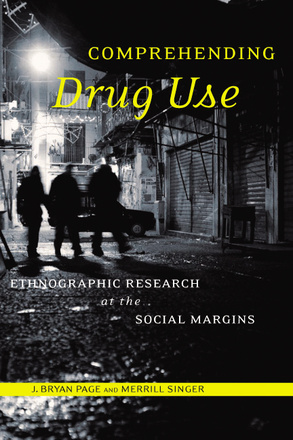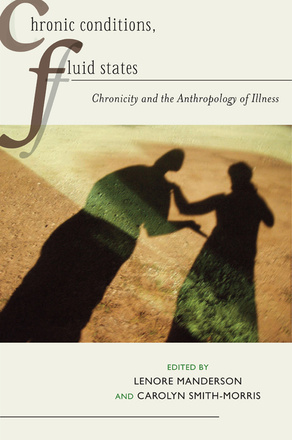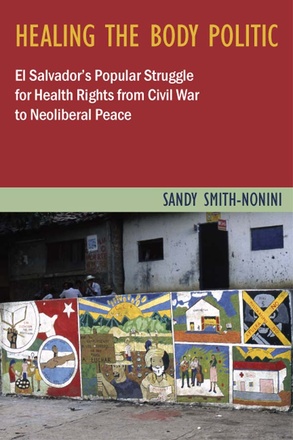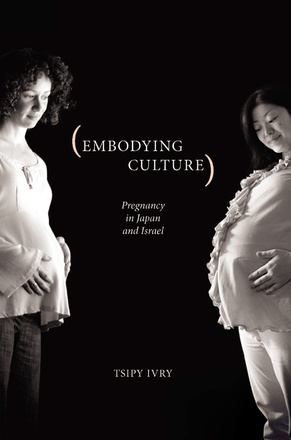Showing 1-10 of 18 items.
Surviving HIV/AIDS in the Inner City
How Resourceful Latinas Beat the Odds
Rutgers University Press
Surviving HIV/AIDS in the Inner City explores the survival strategies of poor, HIV-positive Puerto Rican women by asking four key questions: Given their limited resources, how did they manage an illness as serious as HIV/AIDS? Did they look for alternatives to conventional medical treatment? Did the challenges they faced deprive them of self-determination, or could they help themselves and each other? What can we learn from these resourceful women?
Sleep Paralysis
Night-mares, Nocebos, and the Mind-Body Connection
Rutgers University Press
Sleep Paralysis explores a form of nocturnal fright: the "night-mare," or incubus. In its original meaning a night-mare was the nocturnal visit of an evil being that threatened to press the life out of its victim. Today, it is known as sleep paralysis-a state of consciousness between sleep and wakefulness, when you are unable to move or speak and may experience vivid and often frightening hallucinations. Culture, history, and biology intersect to produce this terrifying sleep phenomenon that is rarely recognized or understood in the contemporary United States.
Obesity
Cultural and Biocultural Perspectives
Rutgers University Press
Grounded in a holistic anthropological approach and using a range of ethnographic and ecological case studies, Obesity shows that the human tendency to become and stay fat makes perfect sense in terms of evolved human inclinations and the physical and social realities of modern life. Drawing on her own fieldwork in the rural United States, Mexico, and the Pacific Islands over the last two decades, Alexandra A. Brewis addresses such critical questions as why obesity is defined as a problem and why some groups are so much more at risk than others. She suggests innovative ways that anthropology and other social sciences can use community-based research to address the serious public health and social justice concerns provoked by the global spread of obesity.
Obesity
Cultural and Biocultural Perspectives
Rutgers University Press
Grounded in a holistic anthropological approach and using a range of ethnographic and ecological case studies, Obesity shows that the human tendency to become and stay fat makes perfect sense in terms of evolved human inclinations and the physical and social realities of modern life. Drawing on her own fieldwork in the rural United States, Mexico, and the Pacific Islands over the last two decades, Alexandra A. Brewis addresses such critical questions as why obesity is defined as a problem and why some groups are so much more at risk than others. She suggests innovative ways that anthropology and other social sciences can use community-based research to address the serious public health and social justice concerns provoked by the global spread of obesity.
Comprehending Drug Use
Ethnographic Research at the Social Margins
By J. Bryan Page and Merrill Singer
Rutgers University Press
Comprehending Drug Use, the first full-length critical overview of the use of ethnographic methods in drug research, synthesizes more than one hundred years of study on the human encounter with psychotropic drugs.
Chronic Conditions, Fluid States
Chronicity and the Anthropology of Illness
Edited by Lenore Manderson and Carolyn Smith-Morris; Afterword by Arthur Kleinman and Rachel Hall-Clifford
Rutgers University Press
Chronic Conditions, Fluid States explores the uneven impact of chronic illness and disability on individuals, families, and communities in diverse local and global settings. Breaking new ground in medical anthropology by challenging the chronic/acute divide in illness and disease, the editors, along with a group of rising scholars and some of the most influential minds in the field, address the concept of chronicity, an idea used to explain individual and local life-worlds, question public health discourse, and consider the relationship between health and the globalizing forces that shape it.
Healing the Body Politic
El Salvador's Popular Struggle for Health Rights from Civil War to Neoliberal Peace
Rutgers University Press
Incorporating investigative journalism and drawing on interviews with participants and leaders, Sandy Smith-Nonini examines the contested place of health and development in El Salvador over the last two decades. Healing the Body Politic recounts the dramatic story of radical health activism from its origins in liberation theology and guerrilla medicine during the third-world country's twelve-year civil war, through development of a remarkable "popular health system," administered by lay providers in a former war zone controlled by leftist rebels.
Your Pocket Is What Cures You
The Politics of Health in Senegal
Rutgers University Press
In the wake of structural adjustment programs in the 1980s and health reforms in the 1990s, the majority of sub-Saharan African governments spend less than ten dollars per capita on health annually, and many Africans have limited access to basic medical care. Using a community-level approach, anthropologist Ellen E. Foley analyzes the implementation of global health policies and how they become intertwined with existing social and political inequalities in Senegal. Your Pocket Is What Cures You examines qualitative shifts in health and healing spurred by these reforms, and analyzes the dilemmas they create for health professionals and patients alike. It also explores how cultural frameworks, particularly those stemming from Islam and Wolof ethnomedicine, are central to understanding how people manage vulnerability to ill health.
While offering a critique of neoliberal health policies, Your Pocket Is What Cures You remains grounded in ethnography to highlight the struggles of men and women who are precariously balanced on twin precipices of crumbling health systems and economic decline. Their stories demonstrate what happens when market-based health reforms collide with material, political, and social realities in African societies.
Abject Relations
Everyday Worlds of Anorexia
By Megan Warin
Rutgers University Press
Abject Relations presents an alternative approach to anorexia, long considered the epitome of a Western obsession with individualism, beauty, self-control, and autonomy. Through detailed ethnographic investigations, Megan Warin looks at the heart of what it means to live with anorexia on a daily basis. Participants describe difficulties with social relatedness, not being at home in their body, and feeling disgusting and worthless. For them, anorexia becomes a seductive and empowering practice that cleanses bodies of shame and guilt, becomes a friend and support, and allows them to forge new social relations.
Embodying Culture
Pregnancy in Japan and Israel
By Tsipy Ivry
Rutgers University Press
Embodying Culture is an ethnographically grounded exploration of pregnancy in two different cultures—Japan and Israel—both of which medicalize pregnancy. Tsipy Ivry focuses on "low-risk" or "normal" pregnancies, using cultural comparison to explore the complex relations among ethnic ideas about procreation, local reproductive politics, medical models of pregnancy care, and local modes of maternal agency.
Stay Informed
Subscribe nowRecent News

